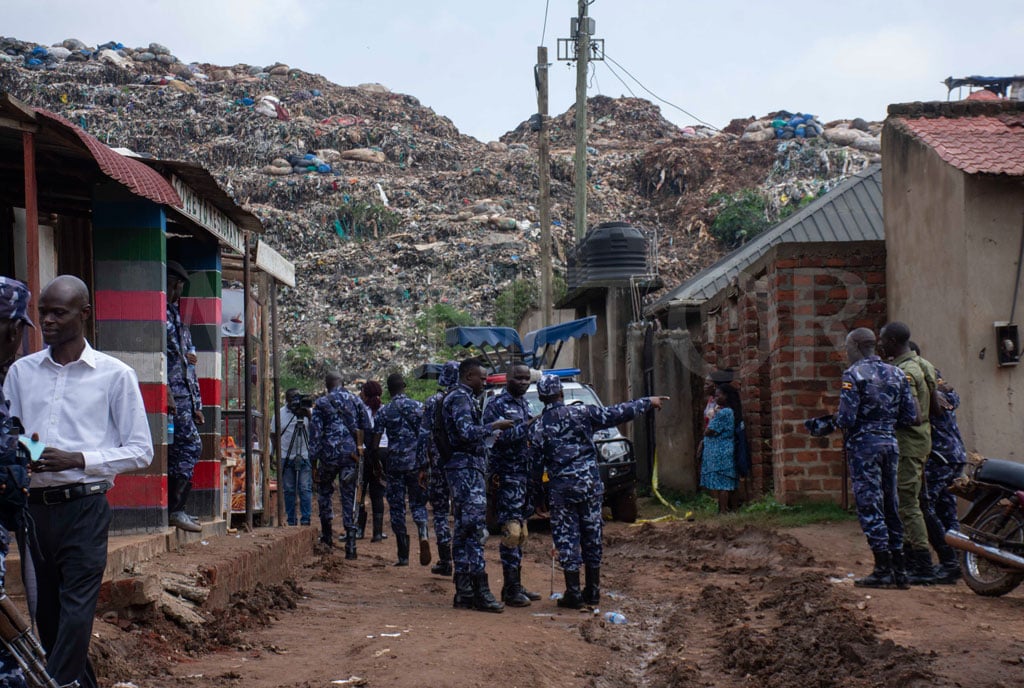Prime
Nairobi peace talks collapse as conflict, instability resume

Gen. Tito Okello-Lutwa (C) exchanges peace agreement documents with NRM/A’s Yoweri Museveni (L) in Nairobi in 1985. Kenyan President Daniel arap Moi (R) chaired the talks. COURTESY PHOTO
What you need to know:
Accusations. The talks from the beginning were characterised by accusations and mistrust between the rebel leaders and the government representatives.
The December 1985 Nairobi accord fell apart just a few weeks after it was signed when the National Resistance Movement/ Army accused the Military Council of not honouring its terms.
In the previous article, we noted that the talks were set on a negative tempo from the word go, with the NRA group led by Yoweri Museveni reportedly missing some sessions of the talks and also tabling new demands after the agenda had been moved forward.
The talks had also been marred by accusations by both parties of working with former Amin soldiers, whom to all, were the architects of dictatorship and torture, a thing they were fighting to eliminate.
The breakdown of the Nairobi Agreement raises questions about what went wrong and whether it was right for the Okello regime to call for talks and/or if the NRA guerrillas were forced into the agreement.
To answer those questions, we need to carefully take into account the events that occurred during or after the pact and also important is the environment under which the talks were held.
We should note quite early that although the NRA accepted to take part in the negotiations, the military wing remained in the areas that it had seized, although it did not increase offensives.
The principles
Prof. A.B.K. Kasozi in his book The Social Origins of Violence in Uganda, notes that because UNLA soldiers, whom the NRA accused of mass killings, still controlled a large part of the country, joining the Okello-Lutwa regime would have compromised the democratic principles which the guerrillas were fighting for.
It is also alleged that the Kampala government had made administrative and policy changes, including making appointments in key positions, without consulting the NRA.
Contrary to the peace accord, the Military Council was accused of flying several former Amin soldiers, especially the Anyanya fighters from Zaire and Sudan, from West Nile and integrating them into the national army.
The NRA is also reported to have accused the regime of continued abuse of human rights and, therefore, could not work with such a government. Phares Mutibwa in Uganda Since Independence: A Story of Unfulfilled Hopes, says: “It is difficult to tell to what extent the NRA was committed to these talks. It undoubtedly wanted peace to be achieved, but it was naturally suspicious of the actions of the two Okellos, and especially so of Wilson Toko. The External Mission of the NRA was probably keener to hold these talks than those who were fighting in the bush, and it is not inconceivable that it was the latter who forced the abrogation of the peace agreement…”
The Kenyan factor
Ambassador Bethuel Kiplagat, the then Permanent Secretary in the Kenyan Ministry of Foreign Affairs, in his review of the peace talks published in 2010 also extensively looks at several aspects that could have weakened the accord.
He says the Kenyan government lacked the in-depth understanding of the conflict, of the key personalities involved and the roles of other governments and external actors and therefore rushed into the signing of the agreement.
“The mediators did not assess the internal power structure of the NRM/A. They did not know the key figures or their views on the talks. Nor did they know whether the leaders were in full control of their fighters and therefore capable of ‘delivering’ their constituencies to fulfill commitments made in any agreement...” Ambassador Kiplagat noted.
“The perils became clear for the Nairobi mediators when, at Museveni’s request, they met the NRA high command in Kabale. They shredded the Nairobi Agreement documents, demonstrating that they would never share power with the generals they did not respect.”
It is also said that the Kenyan team did not take into account the secondary parties such as Burundi, Rwanda and Libya who had their own interests in the region and were backing one or the other of the primary parties. This, therefore, left some parties, whose position on the war was never known, out of the negotiations.
The rush
We have previously looked at how the Kampala government rushed to Daniel arap Moi to mediate the talks after Tanzanian president Julius Nyerere gave a cold shoulder.
Moi accepted the role, although he could have had other motives, rather so fast. It would also have been helpful for the Kenyan team to ascertain at the very beginning whether the government and NRM/A genuinely wanted a negotiated settlement.
There could have been a possibility that the guerillas accepted the ceasefire to reorganise, or portray a good image to the international community, which the Moi team probably did not pay attention to.
The talks also lacked international observers. From the list of people who attended, we could clearly see that only the government side and NRM representatives were present and the other party being the Kenyan team overseeing the agreement.
The involvement of international organisations could have added moral and political weight to the agreement or sprinkled more credibility and resources by becoming political and moral guarantors of the agreement.
This party would also give some advice that the Moi team could have lacked.
The answer to why the peace talks collapsed, can therefore, be linked to a series of factors but with hindsight, we can discern that the Kampala government could have rushed into the talks and that Kenya should have done better.
With the collapse of the Nairobi Agreement, conflict and instability resumed.
The new government soon found itself fighting fresh rebellions in the north and west.
Continues tomorrow




